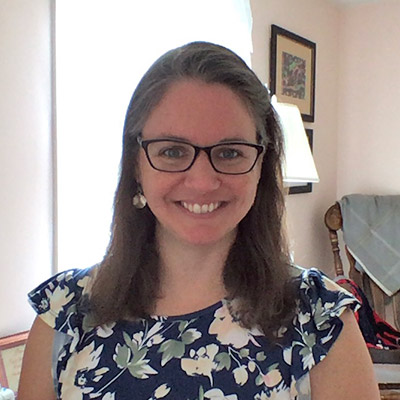
Laura Ganley, Ph.D.
Associate Research Scientist
Spatial Ecology, Mapping, and Assessment, Anderson Cabot Center for Ocean LifeEducation
PhD, Biology, University of Massachusetts Boston, 2020
BS, Zoology, University of New Hampshire, 2007
About
Dr. Laura Ganley is an associate research scientist in the Spatial Ecology and Mapping Program (EcoMap), has been studying large whales in the Gulf of Maine since 2005. She has extensive aerial survey experience, having flown right whale surveys in the southeast U.S. calving grounds and in the feeding grounds in Cape Cod Bay. Most recently she has flown surveys in the Beaufort and Chukchi Seas directed at bowhead, gray, and beluga whales.
Her PhD centered on estimating right whale abundance from aerial surveys and determining the environmental and biological mechanisms driving variations in abundance. In EcoMap, Laura is an observer on aerial surveys, and is interested in furthering our understanding of the impacts of climate change on whale distribution, assessing the risk of mortality to large whales from ship strikes, developing models to quantify the mechanisms driving abundance variations in the Wind Energy Area near Martha’s Vineyard and Nantucket, and comparing Protected Species Observer data to aerial survey data.
Affiliations
Featured Research
-
Perspectives on using Protected Species Observer (PSO) data to fill knowledge gaps about marine species distributions and habitat use
Aquarium Affiliate Author(s): Laura Ganley, Ph.D., Katherine McKenna, Jessica V. Redfern, PhD
Published June 05, 2024 -
Is our understanding of aquatic ecosystems sufficient to quantify ecologically driven climate feedbacks?
Aquarium Affiliate Author(s): Laura Ganley, Ph.D.
Published June 04, 2024 -
Effects of changing temperature phenology on the abundance of a critically endangered baleen whale
Aquarium Affiliate Author(s): Laura Ganley, Ph.D., Dan Pendleton, Ph.D., Jessica V. Redfern, PhD
Published October 01, 2022

